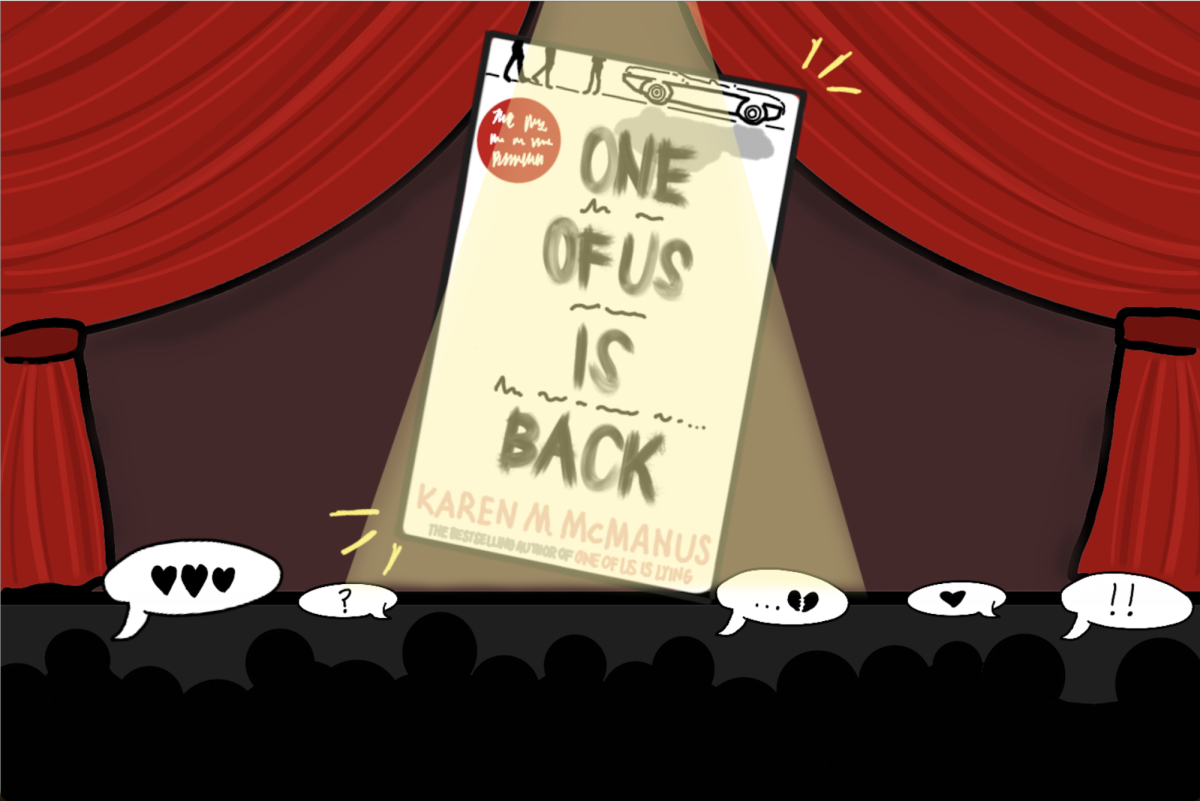In bed, when she closed her eyes, she could see the “2048” tiles. While she drifted off to sleep, she thought about what her next move may be.
Over the span of the annual music tour in March, “2048” was more than just a game for Sam Cohen (’16). It was a claim to fame, a way to feel superior over her friend, Courtney Welch (’16). If Cohen could beat the game, she would also win the race that many of her other classmates were competing in; the race to ultimately make the 2048 tile. Many of her other classmates were competing while in Paris for Music Tour.
Cohen believes that playing to beat “2048” was not propelled by the need to be a self-proclaimed master but through the need to beat everyone else. “On our music tour] bus, it was about being the first person to finish it, so after I beat it, people came up to me and said they didn’t have any motivation,” she said.
When Cohen beat the game after hours of being glued to her iPhone screen, she was elated. “First, I was like ‘did this just happen?’ Then I screamed,” Cohen said.
Along with the rise of smartphones and tablets, there has been a spike in popularity in smartphone gaming. Now, instead of sitting down in front of a TV and playing a video game, one can simply click on an app’s icon on one’s phone and play in short bursts when on the run.
Bjorn Sigurdsson (’15) affirms this. “The best games you can play for five minutes and then you can drop them,” he said.
This instantaneous access has particularly appealed to teenagers–the age group that yearns for constant connectivity and always carries their phones. When in a particularly boring situation, teenagers find comfort in their phones which can provide for instant entertainment. This gaming phenomenon has fuelled the gaming addictions that are prevalent within our society. According to Nielsen.com, a global information and measurement company, 60 percent of American teenagers who own smartphones play games on them.
Cohen felt that beating “2048” had an immense effect on her. “When I beat it, I put it down, and I was like ‘the world seems so much brighter now,” she said.
While students like Cohen believe that beating a game is a colossal achievement – a result of hours of hard work – students like Jacov Pichougov (’17) see the opposite. “I don’t think completing a video game is something to be that proud of. You can’t put that on a résumé, and say you have finished a game after 100 hours,” he said.
One of the factors that draws students into gaming is the warmth of the gaming community. Pichougov views it like any other hobby or interest. “Its kind of like the same thing as liking the same TV shows or books” he said. Shared interests bring people together.
However, a shared interest can spiral into something much bigger. Sigurdsson and his friends constantly share scores and are always competing for the highest scores in iPhone games such as “Flappy Bird”, “2048”, and “Candy Crush.” Like Cohen, Sigurdsson believes that social pressure is his biggest motivator for continuously playing. “I usually have the highest scores among my friends so I have built up a reputation in being ridiculously good at these super pointless games. So I feel pressure now because if I mess up, my reputation is ruined – I need to keep it up,” Sigurdsson said.
For Kara Fallin (’17), her peers help determine when she gets addicted to a game. She believes her addiction comes and goes in phases, and such phases are prompted by competition. When competing with video games with her peers, she often starts to get into it, and the added competition to improve her score in comparison with her peers helps propel this addiction. Fallin’s addiction is also driven by simply watching others playing video games. “I think its inspired by people, when I see people playing it, I want to start playing too,” she said.
The previous generation stared into television screens with video game consoles in their hands. This has evolved into something very different. This generation’s favorite pastime is to game and clutch tiny machines with screens, as about two thirds of Americans play video games on a daily basis according to a gaming website, Big Fish Games. Sigurdsson chooses to game with iPhones as opposed to video game consoles, as he believes it is less time-consuming. It is more casual, and less of a rigamarole to simply take out your iPhone and start playing.
With an iPhone, “It’s easy to convince myself that I am not wasting time,” Sigurdsson said. “I feel guilty turning on a Playstation instead of doing work. I feel less guilty when I just turn on my phone.”
maya_jotwani@asl.org







